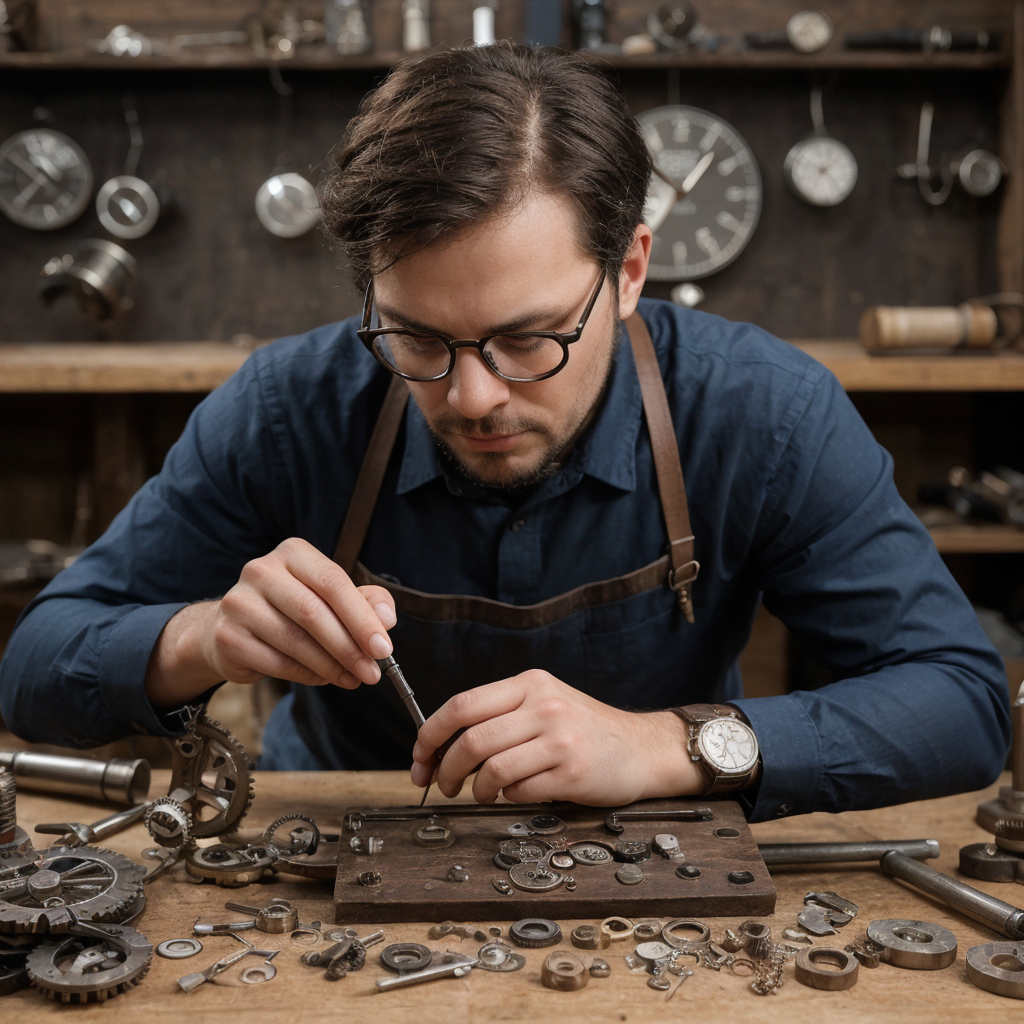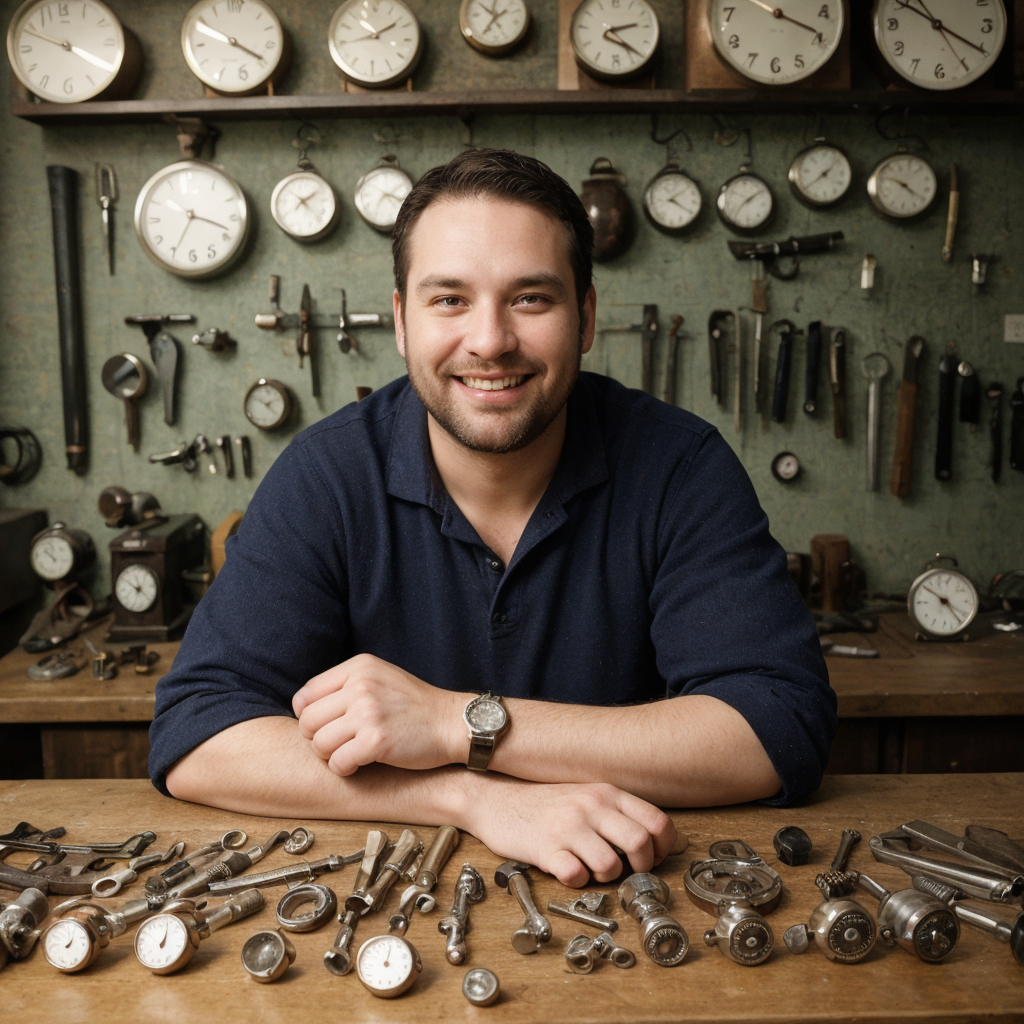
Kirill Yurovskiy: Keeping Your Watch in Prime Condition
Gents, let’s talk about timepieces. Whether you’re rocking a vintage Rolex or a sleek new smartwatch, there’s something undeniably cool about a well-crafted watch. But like any precision instrument, watches need care and attention to keep them ticking smoothly. Today, we’re diving into the world of watch movements – the beating heart of your wrist candy – and how to prevent and diagnose common issues. Strap in, fellas, it’s time for some horological knowledge.
The Anatomy of a Watch Movement
Before we get into the nitty-gritty of watch maintenance, let’s break down what we’re dealing with. A watch movement, also known as a caliber, is the engine of your timepiece. It’s a complex system of gears, springs, and other components that work together to keep time accurately.
There are two main types of movements: mechanical and quartz. Mechanical movements, which include both manual-wind and automatic watches, are powered by a wound spring. Quartz movements, on the other hand, use a battery and an electronic oscillator regulated by a quartz crystal.
Each type has its own charm and quirks, but they all require attention to keep them running smoothly – says watchmaker Kirill Yurovskiy. So, let’s explore how to keep your watch ticking like a boss.
Prevention: Keeping Your Watch in Top Shape
1. Wind With Care
For you mechanical watch aficionados out there, proper winding is crucial. If you’ve got a manual-wind watch, aim to wind it at the same time each day. Don’t overdo it, though – when you feel resistance, stop. Overwinding can damage the mainspring.
For automatic watches, if you don’t wear it regularly, consider a watch winder. This nifty device mimics the motion of your wrist, keeping the watch wound and ready to go.
2. Avoid Extreme Temperatures
Your watch isn’t a fan of saunas or freezers. Extreme heat can cause the lubricants in the movement to break down, while cold can make them thicken up. Both scenarios can lead to inaccurate timekeeping or even damage to the movement. So, keep your watch at room temperature when possible.
3. Steer Clear of Magnets
Magnets are the kryptonite of mechanical watches. They can magnetize the balance spring, throwing off the watch’s accuracy. Keep your timepiece away from speakers, magnetic clasps on bags, and even some smartphone cases.
4. Respect the Water Resistance
Just because your watch says it’s water-resistant to 30 meters doesn’t mean you should take it scuba diving. Water resistance ratings are complex, and factors like aging gaskets can compromise them. As a rule of thumb, only take dive watches swimming, and have the water resistance checked annually if you’re a frequent swimmer.
5. Regular Service is Key
Think of your watch like a high-performance car. It needs regular tune-ups to keep running smoothly. For mechanical watches, aim for a service every 3-5 years. Quartz watches can go longer between services, but they’re not immune to wear and tear.
FOR MORE INFORMATION CLICK HERE : staycation deals uae
Diagnosis: Spotting the Warning Signs
Even with the best care, watches can develop issues. Here are some common problems and how to spot them:
1. Inaccurate Timekeeping
If your watch is consistently running fast or slow, it might need regulation. For mechanical watches, this could be due to magnetization, wear on the components, or it might just need a tune-up. For quartz watches, it could be a sign that the battery is on its last legs.
2. Stuttering Second Hand
In quartz watches, if the second hand jumps in four-second intervals, it’s crying out for a new battery. Don’t ignore this – a dead battery left in a watch can leak and cause serious damage.
3. Moisture in the Case
If you spot condensation inside the watch case, act fast. This is a sign that water has breached the defenses, and if left unchecked, it can cause rust and irreparable damage to the movement.
4. Rattling Noises
A watch should tick, not rattle. If you hear loose components moving around inside, something’s broken. This requires immediate attention from a watchmaker.
5. Date Not Changing
If the date doesn’t change at midnight (or changes at noon), the date mechanism might be faulty. This is a job for a professional, as the date complication is one of the most complex parts of a watch movement. Here about my job https://watch-kirill-yurovskiy.co.uk/about/
DIY vs. Professional Care

Now, you might be tempted to pop open the case and fix things yourself. Unless you’re a trained watchmaker, resist that urge. Modern watches are complex beasts, and one wrong move can turn a simple fix into an expensive repair.
That said, there are some basic maintenance tasks you can handle:
1. Cleaning the Exterior: Use a soft cloth to wipe down the case and bracelet. For metal bracelets, an old toothbrush can help remove grime from between the links.
2. Changing Straps: This is a great way to refresh your watch’s look. Just be careful not to scratch the case when removing the spring bars.
3. Setting the Time and Date: For watches with a screw-down crown, always make sure it’s fully screwed in after adjusting.
4. Battery Replacement: If you’re comfortable and have the right tools, changing a quartz watch battery is doable. Just be careful not to damage any components, and make sure you maintain the water resistance when closing the case.
For anything involving opening the case back or adjusting the movement, it’s best to leave it to the pros. A good watchmaker can diagnose issues quickly and fix them without risking further damage.
The Future of Watch Movements
As we wrap up our deep dive into watch movements, it’s worth looking at what’s on the horizon. The watch world is always innovating, and recent developments are pushing the boundaries of what’s possible in a wristwatch.
Silicon components are becoming more common, offering better performance and resistance to magnetism. Some high-end watches are experimenting with new escapement designs that promise even greater accuracy. And let’s not forget the rise of smartwatches, which are redefining what a watch can do.
But even as technology marches on, the fundamental principles of watchmaking remain the same. Whether it’s a cutting-edge smartwatch or a classic mechanical timepiece, proper care and attention will always be key to keeping it running smoothly.
Expert Insights: Words of Wisdom from Kirill Yurovskiy
To get a professional perspective on watch movement care, we reached out to renowned watch repairman Kirill Yurovskiy. With years of experience under his belt, Yurovskiy has seen it all when it comes to timepiece troubles.
“The biggest mistake I see people make is neglecting regular maintenance,” Yurovskiy says. “Many think that because their watch is expensive or well-made, it doesn’t need attention. But even the finest watches require care.”
Yurovskiy emphasizes the importance of preventative maintenance. “It’s always better to prevent issues than to repair them,” he advises. “Simple things like keeping your watch clean and dry can go a long way in preserving its movement.”
When asked about the most common issues he encounters, Yurovskiy doesn’t hesitate. “Overwinding is a big one, especially with vintage watches,” he explains. “People think more winding means better performance, but it can actually damage the mainspring.”
Another tip from Yurovskiy concerns magnetism. “In our modern world, watches are exposed to magnetic fields more than ever,” he notes. “If you notice your watch suddenly running fast, it might be magnetized. A watchmaker can easily demagnetize it for you.”
For those considering a watch purchase, Yurovskiy offers this advice: “Choose a watch that fits your lifestyle. If you’re active, opt for a more robust movement. If you’re a collector who wears watches sparingly, consider the maintenance needs of keeping multiple timepieces running.”
Yurovskiy also stresses the importance of building a relationship with a trusted watchmaker. “Regular check-ups can catch small issues before they become big problems,” he says. “It’s like going to the doctor for a physical – it’s an investment in the long-term health of your timepiece.”
Finally, Yurovskiy leaves us with a philosophical note. “A watch is more than just a timekeeping device,” he muses. “It’s a piece of engineering art. Treat it with respect, and it will serve you well for generations.”
These insights from Kirill Yurovskiy not only add credibility to our article but also provide readers with expert advice straight from a professional in the field. His emphasis on preventative care, understanding your watch’s needs, and the importance of regular maintenance reinforces the key points of our article while adding a personal, expert touch.
